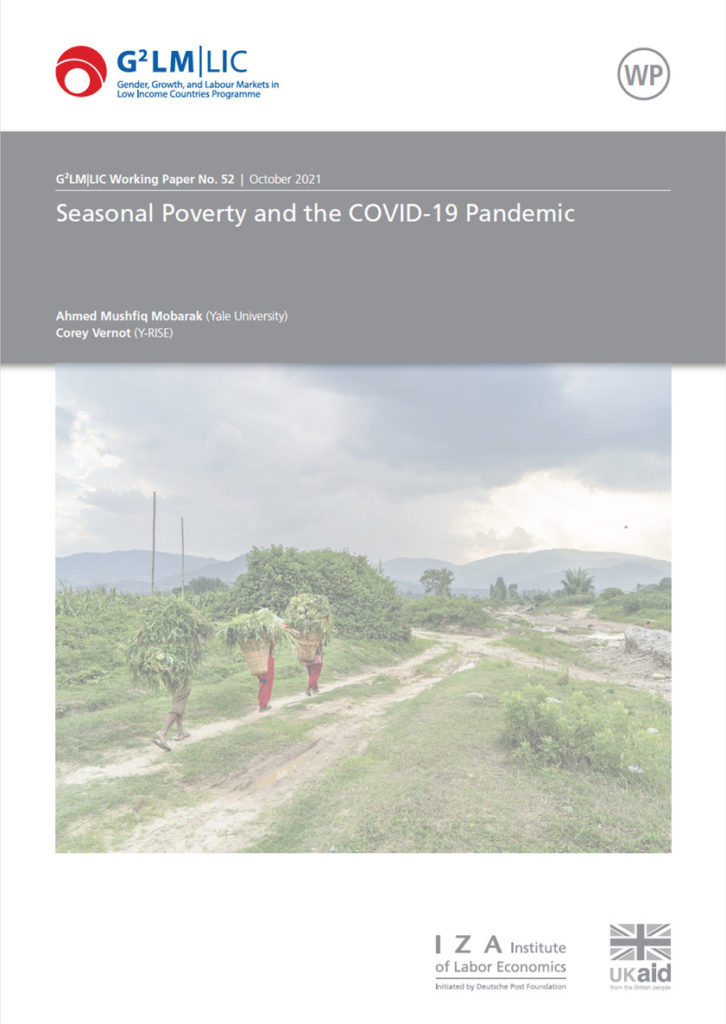Three quarters of the worlds’ poor live in rural areas. It is therefore imperative to understand how the COVID-19 Pandemic and the corresponding economic recession affects them. As a long research line has already investigated, seasonality is a preponderant economic feature in the life in rural communities. Today, many countries in Sub-Saharan Africa and South and South East Asia suffer from pre-harvest “hungry” seasons of food deprivation among the rural poor, followed by post-harvest periods where agrarian production funds investment in the future. Distress during the agricultural lean season stems from a combination of high prices and little income. The COVID-19 Pandemic replicates these conditions by segmenting markets, barring supply of traded goods, and by dampening labor demand through global recession. Moreover, migration restrictions imposed in the context of the pandemic further place particular economic stress on to rural communities.
This paper thus investigates how the COVID-19 pandemic interacts with the agricultural cycle in rural communities in Nepal and Bangladesh. To this end, new survey data from villages in in these countries was collected immediately after the pandemic reached the region and combined with existing survey data from prior years to construct a household panel. Even though COVID-19 reached the investigated regions around the harvest season, the results show the economic wellbeing during the pandemic to be far worse than is typical. The global Economic slowdown can exacerbate deprivation when it overlaps with the lean season and can displace productive capacity at other times of the year potentially perpetuating cycles of poverty. Read the detailed Working Paper here.
